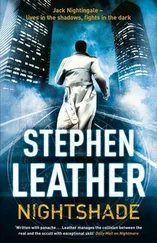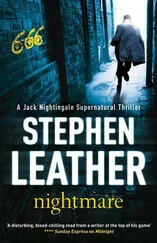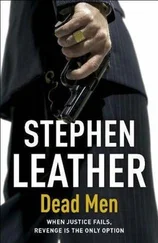Had he been alone, Harper would have left the path at once, and worked his way through the jungle until he was safely past whatever lay ahead, but even if Scouse had been relatively fit, Harper knew he would have struggled to make good time through such dense secondary jungle and in his present weakened state it would be next to impossible for him.
Harper moved on, measuring each footfall, scanning the foliage for bent or broken branches, and scenting the air for the distinctive sour aroma of coca leaves being processed into cocaine base. When they reached a jungle stream, he even crouched down and scooped up a mouthful of water, tasting it for traces of chemical run-off, that would have signalled an active cocaine lab.
They had walked on for another mile or so, when they came to a row of pits, like roughly dug open graves in the forest floor. They were lined with plastic sheeting and though they were empty, they still carried the stink of kerosene. ‘What the hell are these?’ Scouse whispered.
‘Maceration pits,’ Harper said. ‘Fortunately for us they haven’t been used recently, so the cocaine fabricás must have moved on to a new site. They don’t stay long in any one place in case the DEA find and target them.’
‘It stinks,’ Scouse said, wrinkling his nose.
‘It’s the kerosene. They fill the pits with coca leaves, soak them in kerosene and sometimes sulphuric acid as well, to break them down. Poor kids they call pisadores - walkers - get paid a few Bolivianos to speed the process by treading them with their bare feet, just like French winegrowers used to tread grapes, except that French kids don’t have to permanently damage their feet by paddling in sulphuric acid, nor get brain damage from the fumes. But the cocaine traficantes don’t care, one thing Bolivia is not short of is destitute kids who’ll do anything for a few bucks.’ He shook his head at the thought. ‘Once the leaves have been macerated long enough, they siphon off the liquid from the pits, mix it with water, bicarbonate of soda and more sulphuric acid, give it a stir and voila! - they’ve got cocaine base. They can’t convert it into powder cocaine in the jungle though, because the chemistry is too complex, so it’s carried into the cities or across the border first. Sometimes it’s hidden in petrol tanks, gas bottles or tyres, or in loads of fruit and vegetables but often it’s just carried on the backs of kids acting as mules - and there are so many that the slang name for them is hormigas - ants. Kids can earn ten or twenty US dollars a day doing it - ten times more money than they could earn in a month working in a legitimate job.’
‘I’m scared to ask why you know so much about the cocaine trade,’ said Scouse.
‘Probably best,’ said Harper.
They moved on again, but the rainforest now began to thin, the remaining trees marked by the scars of logging and burning, and as they reached the edge of a clearing, they saw a few shacks built of mud and branches, and roofed with palm fronds or rusting corrugated iron sheets, that were held in place by rocks and tyres piled on them. Harper put his mouth close to Scouse’s ear and breathed, ‘We can’t risk being spotted by whoever lives in these, so we need to retrace our steps a little way and then start to climb up the mountain again.’
They back-tracked for a couple of hundred yards and Harper then turned back up the mountain, following a stream bed that offered a slightly easier path through the last fringes of the rainforest. Before he did so, he drank as much water as he could hold and got Scouse to do the same and then re-filled their bottles from the stream. ‘It may be a while before we find another water source,’ he said, ‘so let’s make the most of this one while we can.’
Then they began to climb. The rainforest thinned and then gave way altogether, first to the narrow zone of the cloud forest. As they paused while Harper assessed the way ahead, he cast a glance up at the tree canopy above them, which was almost buried under the thick mat of moss growing over it. As they reached the end of the cloud and moved on to the open slopes beyond, Harper kept his gaze moving, scouring the slopes above them for movement, but concentrating most of his attention behind them. The slopes offered little cover other than scattered boulders and a few trees that diminished still further in number as they climbed higher, but he made use of whatever he could find, working his way up from boulder to boulder and using any dip or patch of rough grass that gave even a vestige of cover from any watching eyes below.
A few short stretches of the road had now come back into view, and he raked each with his gaze for any sign of the Landcruiser or the sicarios before moving on again. He set a stiff pace, climbing up the mountain side at a forty-five degree angle to the slope, but soon had to slow his pace as Scouse was already beginning to struggle and his chest was heaving from the effort of scaling the steep slope in the increasingly thin, oxygen-depleted mountain air. Harper could hear Scouse’s gasps and rasping breath as he tried to match Harper’s pace, and he eased off a little but said ‘Scouse, mate, we’ve got to be up to the ridge and well away before they spot the car and start searching for us, can you give it all you’ve got?’
‘I’m trying, Lex, believe me, but I just can’t seem to get my breath.’
‘It’s the altitude,’ Harper said, ‘but save what breath you’ve got for climbing and once we reach the ridge the going should be a lot easier. The good news is that if any or all of the guys who are following us are Brazilians or Colombians, they aren’t going to be any more comfortable at this altitude than we are.’
‘They have big mountains in Colombia too.’
‘I know but most of the country is tropical coast or rainforest and the guys who run the cocaine cartels there are mostly from the lowlands.’
‘But if the guys chasing us are Bolivians or Colombians from the Andes?’
‘Then we might well be in the shit, because they’ll be far more used to operating at altitude than we are and it won’t have the same ill effects on them that it does on us.’
They had to climb with some care for the gritty soil and dry grasses of the upper slopes didn’t offer the most secure footing and beyond that were bare rock and loose screes that posed even greater problems. Higher still above them, they could now see the permanently snow-capped peaks of the Andes filling the horizon. ‘Be glad we’re not going over those,’ Harper said. ‘Just another couple of hundred metres and we’ll be up to the ridge and then we’ve just got to keep following the contours around the head of the valley and over the next ridge beyond it.’
‘Oh is that all,’ Scouse started to say, but then his breath failed him, and he shook his head and ploughed on, ever more slowly, using his hands to pull himself upwards over the steepening gradient.
CHAPTER 20
They were crossing a stretch of bare granite rock, and the sun striking it at a low angle was sparkling, both from the billion quartz crystals embedded in it, and from the veins of a silvery metal ore that were threaded through it. ‘That couldn’t be silver, could it?’ Scouse said, forgetting his breathlessness for an instant in his excitement.
‘I dunno, maybe,’ Harper said. ‘They used to mine a lot of silver in Bolivia.’ They moved on up the glittering slope. In other circumstances it would have been a truly beautiful sight, but here it merely increased their danger, for anything moving across it would break up the pattern of light and be clearly visible from a long way away. Had Harper been able to find a way to skirt it, he would have done so, but it stretched for as far as he could see in either direction, so there was no option but to grit his teeth and cut across it, praying that they would remain undetected. They had almost reached the upper edge of it, where it disappeared beneath the scree that cloaked the approach to the summit ridge, and had heard no sound, nor seen any sign of their pursuers, when something struck a rock a few yards away to their right and they heard the unmistakable sound of a ricochet as a round whined away.
Читать дальше











